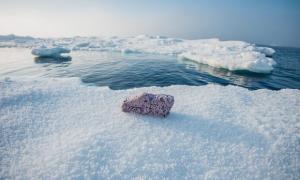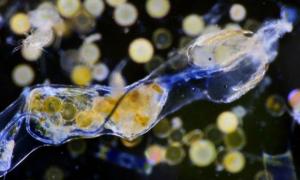Very worrying finding’ from nearly 11km deep confirms fears that synthetic fibres have contaminated the most remote places on Earth
Animals from the deepest places on Earth have been found with plastic in their stomachs, confirming fears that manmade fibres have contaminated the most remote places on the planet.
The study, led by academics at Newcastle University, found animals from trenches across the Pacific Ocean were contaminated with fibres that probably originated from plastic bottles, packaging and synthetic clothes.
Dr Alan Jamieson, who led the study, said the findings were startling and proved that nowhere on the planet was free from plastics pollution.
“There is now no doubt that plastics pollution is so pervasive that nowhere – no matter how remote – is immune,” he said.
Evidence of the scale of plastic pollution has been growing in recent months. Earlier this year scientists found plastic in 83% of global tapwater samples, while other studies have found plastic in rock salt y fish.
Very worrying finding’ from nearly 11km deep confirms fears that synthetic fibres have contaminated the most remote places on Earth
Animals from the deepest places on Earth have been found with plastic in their stomachs, confirming fears that manmade fibres have contaminated the most remote places on the planet.
The study, led by academics at Newcastle University, found animals from trenches across the Pacific Ocean were contaminated with fibres that probably originated from plastic bottles, packaging and synthetic clothes.
Dr Alan Jamieson, who led the study, said the findings were startling and proved that nowhere on the planet was free from plastics pollution.
“There is now no doubt that plastics pollution is so pervasive that nowhere – no matter how remote – is immune,” he said.
Evidence of the scale of plastic pollution has been growing in recent months. Earlier this year scientists found plastic in 83% of global tapwater samples, while other studies have found plastic in rock salt y fish.



